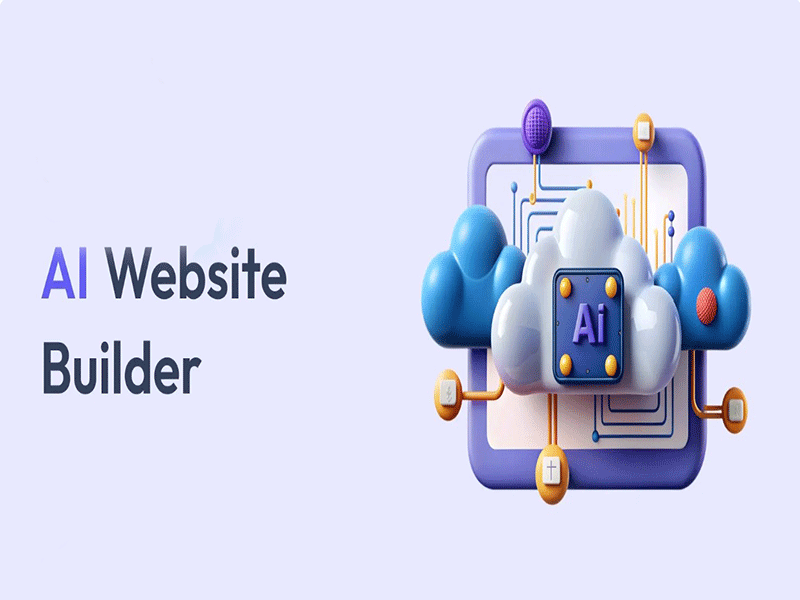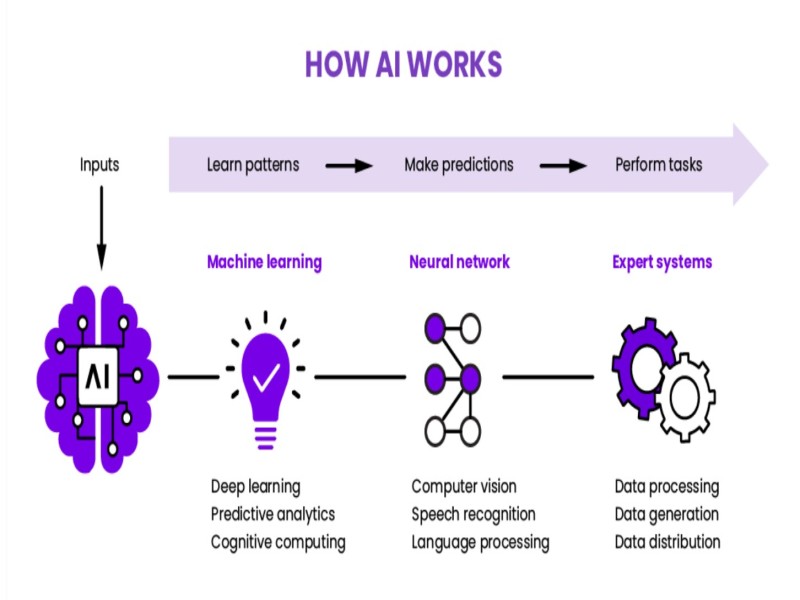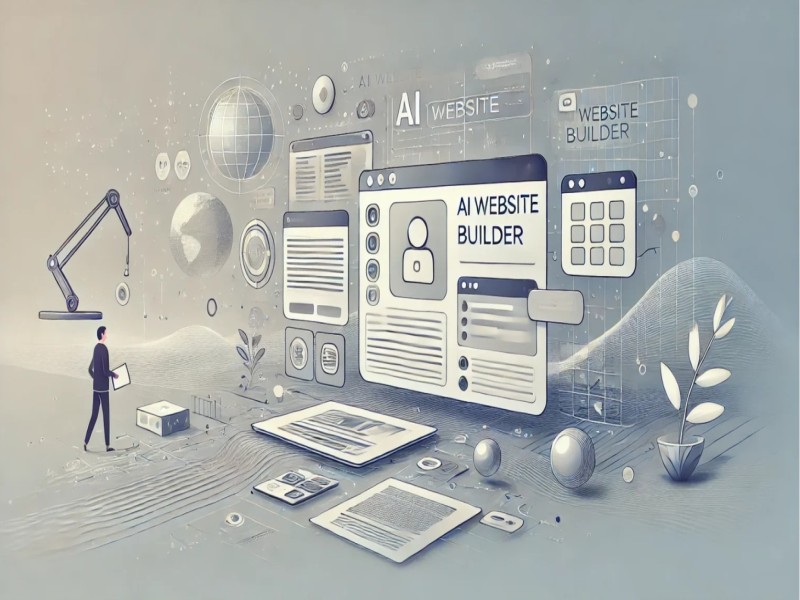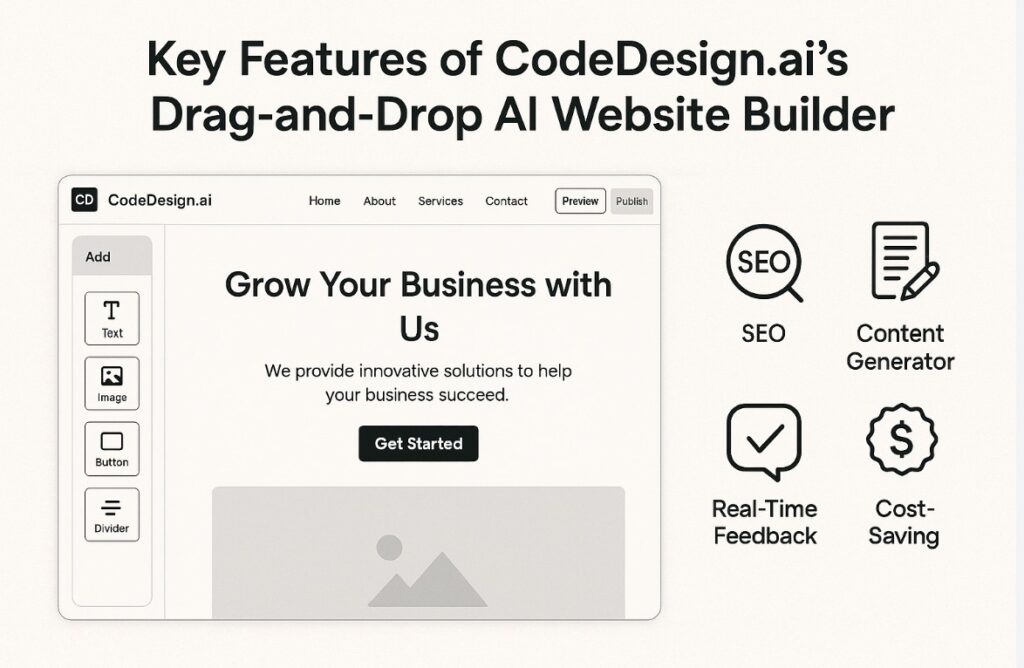Ten years ago, building a website meant hiring a developer, learning to code, or spending days tweaking templates. Today, AI website builders are changing that — drastically.

With the right AI-powered tool, you can go from an idea to a polished, functional website in a matter of minutes.
In this guide, we’ll cover:
- How AI website builders work.
- The benefits and limitations.
- The best platforms available in 2025.
- Real-world examples of businesses succeeding with AI-built sites.
- A checklist for launching your AI-powered website.
If you want to add conversational AI to your site, check out my Top AI Chatbots — Which One Should You Use?.
1. How AI Website Builders Work

AI website builders combine machine learning, natural language processing (NLP), and design algorithms to automate much of the web design process.
Step-by-Step Workflow
- Input: You answer a few questions about your business, goals, and style preferences.
- AI Analysis: The system generates layouts, text, and media tailored to your industry.
- Customization: You tweak colors, fonts, and sections — often with drag-and-drop simplicity.
- Deployment: The site is live, mobile-friendly, and optimized for SEO.
📌 W3C Web Standards explains accessibility and performance guidelines that top builders now integrate automatically.
2. Benefits of AI Website Builders
Speed
Launch a professional website in hours instead of weeks.
Cost Savings
No need for a full development team for basic business sites.
Built-In Optimization
Many AI builders include SEO recommendations, accessibility checks, and mobile responsiveness by default.
Content Generation
AI can draft your homepage text, about page, and even blog posts — ready for you to edit.
3. Limitations to Consider
- Less Custom Code Flexibility — Advanced features may require a developer.
- Template Overlap — Some AI-generated designs can look similar if not customized.
- Brand Personality — AI-generated copy may need human editing for voice and authenticity.
📌See why generative AI still needs human oversight to ensure originality.

4. Best AI Website Builders in 2025 — Comparison Table
| Platform | Best For | Strengths | Weaknesses |
|---|---|---|---|
| BotBrain AI Website Builder | Small businesses wanting chat + site in one | Integrated chatbot, fast setup, GDPR/CCPA compliance | Less suited for e-commerce heavy sites |
| Wix ADI | Beginners | Easy setup, lots of templates | Limited custom logic |
| Squarespace AI | Creatives & portfolios | Strong visual designs | Less developer flexibility |
| Durable | Ultra-fast one-page sites | Instant draft in 30 seconds | Minimal deep customization |
| Framer AI | Startup landing pages | Great animations, responsive layouts | Requires some design experience |
5. Real-World Success Stories
Local Bakery
Used BotBrain AI Website Builder to create a website with menu, ordering system, and integrated chatbot. Result:
- 25% increase in online orders.
- Reduced phone order time by 40%.
Freelance Designer
Built a portfolio site in under two hours with Wix ADI. Result:
- Landed two new clients in the first month.
Startup SaaS Company
Launched a Framer AI landing page with live chat support. Result:
- Conversion rate improved by 18% compared to old site.
6. AI Website Builder Implementation Checklist
Before launching, make sure to:
- Choose a builder that supports your must-have features (chatbot, e-commerce, booking).
- Customize text and images to reflect your brand voice.
- Test on multiple devices for responsiveness.
- Add analytics tracking.
- Check SEO basics — page titles, meta descriptions, alt text for images.
7. The Role of BotBrain in AI Web Design
BotBrain offers a unique advantage: a website and a trained AI chatbot, built together.
- Website ready in minutes.
- Chatbot trained on your own data sources.
- Secure hosting and GDPR-compliant architecture.
📌 Learn more about how BotBrain combines site building and AI chat.
8. Future Trends in AI Web Design
- Hyper-Personalized Websites: AI dynamically changes site content for each visitor.
- Voice-First Navigation: Sites designed for voice commands and screenless browsing.
- Generative Layouts: AI changes layouts in real time based on engagement data.
- Integrated AI Marketing: Real-time SEO and campaign optimization built into the CMS.
9. Conclusion
AI website builders are more than just a convenience — they’re a competitive advantage in speed, cost, and adaptability.
For small businesses, they remove barriers to getting online. For larger companies, they speed up prototyping and iteration.
The key is to choose the right platform, customize thoughtfully, and blend AI efficiency with human creativity.



